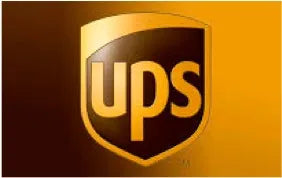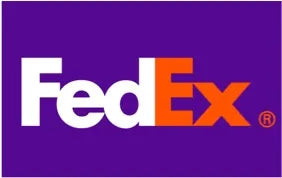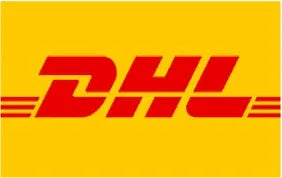Private label and white label are two popular strategies used by companies to bring products to market. While they are similar in some ways, there are important differences that companies need to be aware of when deciding which strategy to use. In this blog post, we will explore the definitions of white label and private label, highlight their similarities and differences, and discuss the advantages and disadvantages of each. Whether you are a startup looking to enter a new market or an established company looking to expand your product line, understanding the differences between private label and white label can help you make an informed decision.
Table of Contents
· Definitions of White Label and Private Label
· Similarities between White Label and Private Label
· Differences between White label and Private Label
· Advantages and Disadvantages of White Label
· Advantages and Disadvantages of Private Label
I、Definitions of White Label and Private Label
· What is White Label?
White label in business refers to a product or service that is produced by one company and then sold by another company under their own branding. Essentially, a white label product is a pre-made, ready-to-use product that can be rebranded and sold as a new, unique product by another company.
The primary benefit of white label products is that it allows companies to enter new markets or expand their product offerings quickly and easily without the need for significant investment in research and development or production. By leveraging the expertise and capabilities of a third-party manufacturer, companies can bring products to market faster and with less risk than if they were to develop the products themselves.
Another advantage of white label products is that they can be less expensive than creating a new product from scratch. This can be especially beneficial for smaller companies or startups that may not have the resources to develop products on their own.
White label products are commonly used in industries such as software, consumer electronics, and consumer packaged goods, where there is a need for quick and efficient product development. For example, a software company may use a white label email marketing platform to provide a new service to their customers without investing in the development of their own platform.
It is worth noting that white label products are not unique to small businesses or startups. Large corporations also use white label products as part of their product offerings, especially when it comes to commodity products that do not require a high level of differentiation.
In summary, white label in business refers to the practice of one company producing a product or service that is sold under another company's branding. It is a strategy that can help companies enter new markets quickly and with less risk, while also providing cost savings and efficiencies.
· What is Private Label?
In business, Private Label refers to a strategy where a company creates and sells products under its own brand name, rather than selling products under the name of another company. In this strategy, the company creates products and sells them under their own branding, packaging, and labeling.
Private Label products can range from food and beverage items to clothing, cosmetics, and electronics. For example, a supermarket may sell private label items under their own brand name, such as "Store's Best" or "Value Choice," in addition to selling name-brand products.
One of the main advantages of Private Label products is that companies have more control over the branding and marketing of the products, which can help to increase customer loyalty and trust. Additionally, Private Label products can be more profitable for companies, as they often have higher margins than name-brand products.
However, there are also some potential drawbacks to Private Label products. One challenge is creating a product that is high quality and can compete with name-brand products. Another challenge is building brand recognition and customer loyalty, as Private Label products are not as well known as name-brand products.
Overall, Private Label is a strategy that can be beneficial for companies looking to differentiate themselves in the market and increase profitability. By creating high-quality products and investing in effective branding and marketing, companies can successfully establish themselves as reliable and trusted provider of goods under their own brand name.
II、 Similarities between White Label and Private Label
While there are some key differences between white label and private label products, they also share some similarities. Both white label and private label products allow companies to quickly enter a new market without investing in research and development. Instead, they can focus on branding and marketing. Both strategies also allow companies to offer a wider range of products without expanding their own manufacturing capabilities.
Both white label and private label products also allow companies to take advantage of the manufacturing expertise of other companies. They can rely on manufacturers to create high-quality products, and simply focus on the branding and marketing of the products. This can be especially beneficial for smaller companies that may not have the resources to develop their own products in-house.
Finally, both white label and private label products offer a level of flexibility that can be appealing to companies. They can choose which products to offer and how to brand them, and can adjust their offerings based on market demand. This can be especially important in fast-moving industries, where companies need to be able to quickly adapt to changing consumer preferences.
Overall, while there are some key differences between white label and private label products, they share many similarities. Both strategies offer companies a way to quickly and cost-effectively enter a new market, while taking advantage of the expertise of other companies. The right choice for a particular company will depend on a variety of factors, including their goals, resources, and target market.
III、Differences between White label and Private Label
One of the main differences between white label and private label products is the level of control that companies have over branding and packaging. With white label products, companies do not have control over the branding or packaging, as it is the responsibility of the original manufacturer. This means that there is limited flexibility when it comes to customizing the product and making it stand out in the market.
On the other hand, with private label products, companies have complete control over the branding and packaging. This means that they can create a unique product that is tailored to their brand and target audience. By having control over the entire process, companies can create a product that is truly their own and differentiates them from competitors.
Another difference between white label and private label products is the level of exclusivity. Because white label products are created by one manufacturer and then sold to multiple companies for rebranding, there is little room for exclusivity. This means that the same product can be sold by multiple companies under different brands, making it difficult for any one company to stand out.
Private label products, on the other hand, are exclusive to the company that creates them. This means that the product is unique to their brand and cannot be sold by other companies. By creating an exclusive product, companies can differentiate themselves from competitors and build brand loyalty among customers.
In terms of production, white label products are generally mass-produced by the manufacturer and sold in large quantities to multiple companies. This can make them a more cost-effective option for companies looking to enter a new market. Private label products, on the other hand, are typically produced in smaller quantities and are tailored to the specific needs and requirements of the company creating them. This can make them more expensive, but also more customized and exclusive.
Overall, the main differences between white label and private label products come down to control over branding and packaging, level of exclusivity, and production processes. By understanding these differences, companies can make an informed decision on which strategy is best for their business goals and target audience.
IV、 Advantages and Disadvantages of White Label
One of the biggest advantages of white label products is that they can be a cost-effective option for companies. By purchasing an already developed product from a manufacturer and adding their own branding and packaging, companies can save time and money that would have been spent on researching and developing a product from scratch. This can be particularly beneficial for small businesses or those on a limited budget.
White label products can also help companies to quickly enter new markets. Instead of spending time developing a product, companies can purchase a white label product that is already established in the market and then simply brand and market it as their own. This can help companies to respond quickly to new trends or opportunities.
However, one of the biggest disadvantages of white label products is that they lack differentiation. Since multiple companies can purchase the same white label product and brand it as their own, there is little opportunity for companies to differentiate themselves from their competitors. This can make it difficult for companies to stand out in a crowded market.
Another disadvantage of white label products is that they may not meet the unique needs of a particular company or market. Since white label products are developed by manufacturers for a general market, they may not be tailored to specific requirements or preferences of a particular market. This can make it difficult for companies to customize the product to meet the needs of their customers.
In summary, while white label products can be a cost-effective and efficient option for companies looking to quickly enter a new market, they do come with some disadvantages. Companies should carefully consider their goals and resources before deciding whether a white label product is the right choice for them.
V、 Advantages and Disadvantages of Private Label
Private label products have many advantages, such as greater control over the product and branding, as well as the ability to create a unique product that stands out in the market. One of the biggest advantages of private label products is that companies have complete control over the entire production process, from product design to branding and packaging. This allows companies to tailor their products to the specific needs of their target market, creating a more unique and valuable product.
Another advantage of private label products is that they often have a higher profit margin than white label products. Since the company is responsible for the entire process, they have greater control over the costs, and can often negotiate better deals with factories, resulting in lower costs and higher profits.
However, private label products also have their disadvantages. One of the biggest disadvantages is that the production process can be more complex and time-consuming than with white label products. Since the company is responsible for everything from product design to packaging and marketing, it can take longer to bring a private label product to market.
Another disadvantage of private label products is that the initial investment can be higher than with white label products. The company must invest in product design, branding, and packaging, which can be expensive. In addition, the company may need to invest in additional resources, such as equipment and personnel, to manufacture the product.
Despite these disadvantages, private label products can be a highly effective way for companies to differentiate themselves in a crowded market, create a unique product that meets the needs of their target market, and achieve higher profit margins. By carefully weighing the advantages and disadvantages of private label products, companies can determine if this strategy is right for them.













0 comments